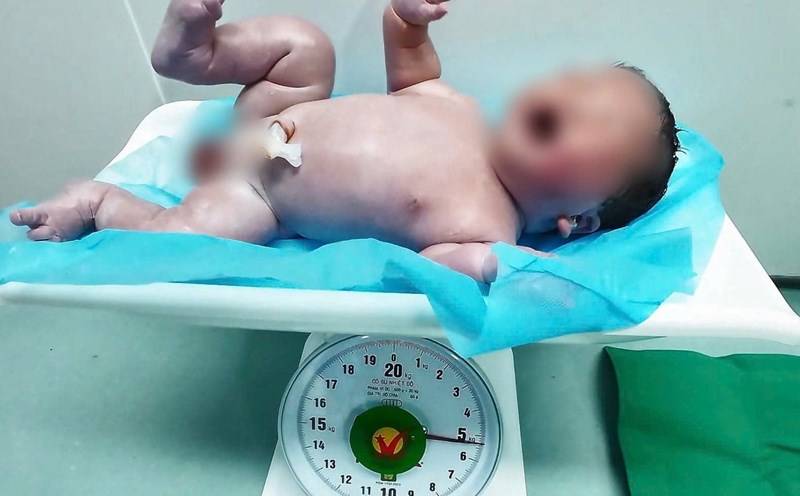The patient is D.V.Y.N, born in 2003, residing in Thai My commune (HCMC), currently a university student. With a BMI of 37 kg/m2, the patient is classified as obese.
The patient was hospitalized with high fever and severe abdominal pain. Doctors diagnosed the patient with bilateral acute nephritis, accompanied by a blood infection and newly discovered diabetes. Despite being treated with strong antibiotics, the condition quickly changed, causing the patient to fall into shock, low blood pressure and respiratory failure. After 48 hours of hospitalization, the patient had to use a ventilator and filter blood to maintain his life.
Blood test results showed that the patient was infected with the bacteria Klebsiella pneumoniae - a type of bacteria with high resistance to drugs, which can damage many organs in the body if not controlled promptly.
MSc. Dr. Tran Thanh Nam, the main treating physician, said: We have to use extravagant oxygen support (ECMO) to help the lungs function when the patient is in a state of severe respiratory failure. This is the last treatment as other measures are no longer effective.
Doctor Tran Thanh Nam added that ECMO intervention in obese people is a big challenge because deep blood vessels and thick fat tissue make tube placement more complicated. In addition, the risk of blood clots, infections and difficulty in adjusting drug doses are also higher than normal.
However, thanks to the effective coordination between the departments of resuscitation, cardiology, clinical pharmacy, nutrition and rehabilitation, after 8 days of ECMO intervention, the patient's health has improved significantly. On July 2, 2025, the patient was discharged from the hospital in stable condition.
Dr. Giang Minh Nhat - Deputy Head of the Department of Cardiovascular Resuscitation, Gia Dinh People's Hospital warned: "Obesity not only increases the risk of diabetes, high blood pressure, stroke, cancer but also makes patients susceptible to severe infections, difficulty in treatment and more expensive medical costs. When obese people get infected, the progress is often faster and heavier than normal people.
Before being discharged, the patient was specifically consulted by a nutritionist on diet, weight loss plan and long-term blood sugar control. I am very grateful to the doctors who saved my life. After this time, I will seriously change my lifestyle so as not to repeat such a dangerous situation," the patient shared.
Doctors recommend that people should maintain a reasonable weight, exercise at least 30 minutes/day, eat scientifically and have regular health check-ups. For people with a BMI of over 30, it is necessary to go to a specialized facility for appropriate advice and treatment.











